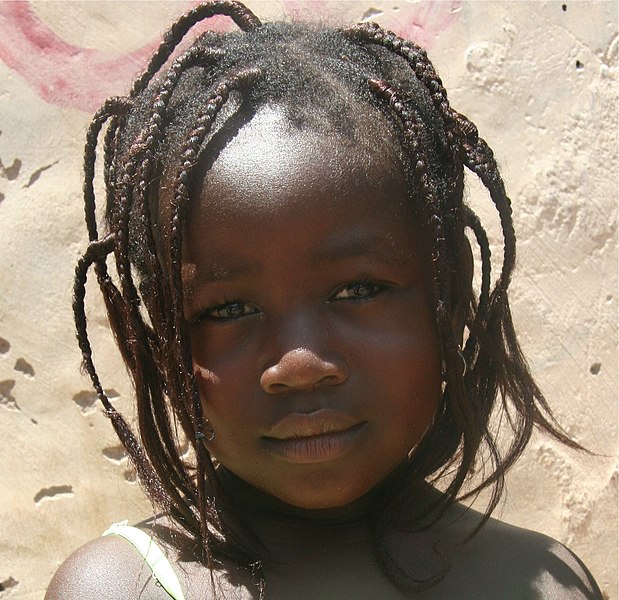Difference between revisions of "Adopting from Burkina Faso"
| Line 10: | Line 10: | ||
{{#eimage:http://upload.wikimedia.org/wikipedia/commons/thumb/2/2f/Cathedrale_Ouagadougou.jpg/800px-Cathedrale_Ouagadougou.jpg|410x579px|thumb|'''Cathedral of Our Lady of Immaculate Conception, Ouagadogou.'''<BR/>Source: Wikipedia.org.}} | {{#eimage:http://upload.wikimedia.org/wikipedia/commons/thumb/2/2f/Cathedrale_Ouagadougou.jpg/800px-Cathedrale_Ouagadougou.jpg|410x579px|thumb|'''Cathedral of Our Lady of Immaculate Conception, Ouagadogou.'''<BR/>Source: Wikipedia.org.}} | ||
| − | |||
| − | |||
{{#eimage:http://upload.wikimedia.org/wikipedia/commons/thumb/1/1c/Ouagadougou_place_nations_unies.JPG/800px-Ouagadougou_place_nations_unies.JPG|410x579px|thumb|'''Typical street scene in Ouagadougou.'''<BR/>Source: Wikipedia.org.}} | {{#eimage:http://upload.wikimedia.org/wikipedia/commons/thumb/1/1c/Ouagadougou_place_nations_unies.JPG/800px-Ouagadougou_place_nations_unies.JPG|410x579px|thumb|'''Typical street scene in Ouagadougou.'''<BR/>Source: Wikipedia.org.}} | ||
{{#eimage:http://upload.wikimedia.org/wikipedia/commons/4/42/Burkina-faso-dourtenga.jpg|410x579px|thumb|'''Traditional village homes.'''<BR/>Source: Wikipedia.org..}} | {{#eimage:http://upload.wikimedia.org/wikipedia/commons/4/42/Burkina-faso-dourtenga.jpg|410x579px|thumb|'''Traditional village homes.'''<BR/>Source: Wikipedia.org..}} | ||
| − | |||
| − | |||
{{#eimage:http://farm9.staticflickr.com/8032/8054460625_98e16fe55f_b.jpg|410x579px|thumb|'''A large family.'''<BR/>Source: flickr.com.}} | {{#eimage:http://farm9.staticflickr.com/8032/8054460625_98e16fe55f_b.jpg|410x579px|thumb|'''A large family.'''<BR/>Source: flickr.com.}} | ||
Revision as of 17:26, 27 August 2014
Notice: As of July 14, 2014, all individuals and agencies facilitating international adoptions must be in compliance with the Intercountry Universal Accreditation Act.
Contents
About Burkina Faso
Burkina Faso (formerly Upper Volta) achieved independence from France in 1960. Repeated military coups during the 1970s and 1980s were followed by multiparty elections in the early 1990s. To learn more, read About Burkina Faso.
Hague Convention Information
Burkina Faso is party to the Hague Convention on Protection of Children and Co-operation in Respect of Intercountry Adoption (Hague Adoption Convention). Intercountry adoption processing in Hague countries is done in accordance with the requirements of the Convention; the U.S. implementing legislation, the Intercountry Adoption Act of 2000 (IAA); and the IAA’s implementing regulations, as well as the implementing legislation and regulations of Burkina Faso. To learn more, read about Burkina Faso and the Hague Convention.
Who Can Adopt
There are many requirements to adopt from Burkina Faso. To learn more, read about Who Can Adopt from Burkina Faso.
Who Can Be Adopted
Because Burkina Faso is party to The Hague Adoption Convention, children from Burkina Faso must meet the requirements of the Convention in order to be eligible for adoption. For example, the adoption may take place only if the competent authorities of Burkina Faso have determined that placement of the child within Burkina Faso has been given due consideration and that an intercountry adoption is in the child’s best interests. In addition to Burkina Faso’s requirements, a child must meet the definition of Convention adoptee to be eligible for an immigrant visa that will allow you to bring him or her to the United States. To learn more, read about Who Can Be Adopted from Burkina Faso.
How to Adopt
WARNING: Burkina Faso is party to the Hague Adoption Convention. Do not adopt or obtain legal custody of a child in Burkina Faso before a U.S. consular officer issues an “Article 5 Letter” in the case. To learn more, read about How to Adopt from Burkina Faso.
Traveling Abroad
Applying for Your U.S. Passport
U.S. citizens are required by law to enter and depart the United States on a valid U.S. passport. Only the U.S. Department of State has the authority to grant, issue, or verify U.S. passports. Getting or renewing a passport is easy. The Passport Application Wizard will help you determine which passport form you need, help you to complete the form online, estimate your payment, and generate the form for you to print—all in one place. Learn more about Traveling Abroad in Burkina Faso.
Obtaining a Visa to Travel to Burkina Faso
In addition to a U.S. passport, you may also need to obtain a visa. A visa is an official document issued by a foreign country that formally allows you to visit. Where required, visas are affixed to your passport and allow you to enter a foreign nation. To find information about obtaining a visa for Burkina Faso, see the Department of State's Country Specific Information.
Staying Safe on Your Trip
Before you travel, it is always a good practice to investigate the local conditions, laws, political landscape, and culture of the country. The Department of State provides Country Specific Information for every country of the world about various issues, including the health conditions, crime, unusual currency or entry requirements, and any areas of instability.
Staying in Touch on Your Trip
When traveling during the adoption process, we encourage you to enroll with the Department of State. Enrollment makes it possible to contact you if necessary. Whether there is a family emergency in the United States or a crisis in Burkina Faso enrollment assists the U.S. Embassy or Consulate in reaching you.
Enrollment is free and can be done online via the Smart Traveler Enrollment Program (STEP).
Contact Information
U.S. Embassy in Burkina Faso
Avenue Sembene Ousmane Secteur 15, Ouaga 2000 01 BP 35, Ouagadougou 01 Tel: [226] 50-49-53-00 Fax: [226] 50-49-56-23 Email: consularouaga@state.gov Internet: U.S. Embassy in Burkina Faso
Burkina Faso Adoption Authority
Ministère de l'Action Sociale et de la Solidarité Nationale La Direction des Placements et des Adoptions Immeuble Baoghin, Secteur 10 01 BP 515, Ouagadougou 01 Burkina Faso Tel: [226] 50 30 68 80 (Switchboard)/ [226] 50 31 00 55 (Direct line) Fax: [226] 50 31 67 37
Embassy of Burkina Faso
2340 Massachusetts Avenue, N.W. Washington, D.C. 20008 Tel: (202) 332-5577 Fax: (202) 667 1882 Email: ambawdc@verizon.net Internet: Embassy of Burkina Faso
Office of Children’s Issues
U.S. Department of State CA/OCS/CI SA-17, 9th Floor Washington, DC 20522-1709 Tel: 1-888-407-4747 E-mail: AskCI@state.gov Internet: U.S. Department of State
U.S. Citizenship and Immigration Services (USCIS)
For questions about immigration procedures: National Customer Service Center (NCSC) Tel: 1-800-375-5283 (TTY 1-800-767-1833) Internet: USCIS
For questions about filing a Form I-800A or I-800 petition:
National Benefits Center
Tel: 1-877-424-8374 (toll free); 1-816-251-2770 (local)
Email: NBC.Adoptions@DHS.gov
SOURCE
Intercountry Adoption, Bureau of Consular Affairs. U.S. Department of State Country Information[1]








